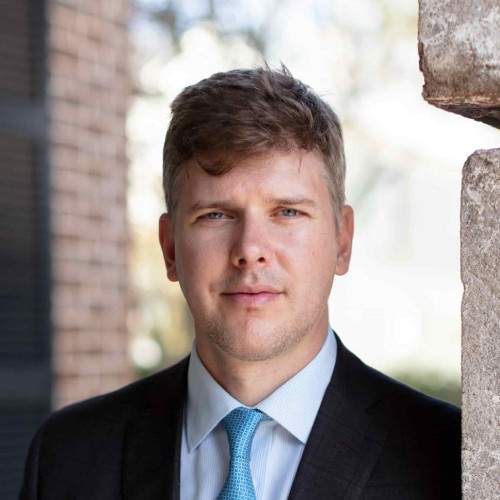
A disturbing case has emerged in Horry County, South Carolina, where a former middle school aide and pastor has been arrested for allegedly sexually assaulting a 13-year-old. Devin Carroll, 22, was taken into custody by the Conway Police Department on a charge of third-degree criminal sexual conduct with a minor, according to WRAL.
The arrest follows an incident reported on May 29 at Conway Middle School, located at 2301 Church St, Conway, SC 29526, where Carroll had been employed as an in-school suspension aide. According to the arrest warrant, Carroll is accused of touching the victim's private parts "with the intent of arousal." The school district confirmed that Carroll had resigned in January, with his departure set for June 7.
Carroll’s role as a pastor has also raised questions. He was previously listed as the pastor of Happy Home Baptist Church in Columbus County, North Carolina. However, the church’s website now shows only its location, with no mention of leadership or additional details. Beyond this, Carroll was ordained at a church in Conway in 2023 and had earlier been affiliated with a church in Loris in 2022, strengthening his ties to the local religious community.
The allegations have sparked concern across both the educational and religious communities. As the case proceeds, further inquiries may explore Carroll’s interactions within these institutions.

When allegations of sexual abuse surface involving individuals in positions of trust, such as pastors or educators, victims often face complex emotional and legal challenges. To better understand the available legal pathways and protections, we spoke with James Moore, a South Carolina attorney experienced in handling cases of sexual abuse. Moore explains the legal recourse victims can take and how the justice system addresses such breaches of trust.
Darla Medina, Editor: Given the allegations against Pastor Devin Carroll, what legal avenues are available for victims of sexual abuse, particularly when the accused holds a position of trust, like a pastor or teacher aide?
James Moore, Attorney: Thank you for having me. Victims in cases like this have several options. Criminal charges, such as the third-degree criminal sexual conduct charge in this case, allow law enforcement to address the perpetrator's actions through the justice system. Beyond that, victims can also file civil lawsuits to seek damages for emotional and psychological harm caused by the abuse.
Medina: How does the relationship between the victim and the accused impact these cases?
Moore: The relationship is significant. Positions of trust, such as pastors or educators, often carry additional legal weight because of the power dynamics involved. Courts and juries tend to view these cases with greater scrutiny, especially when the accused allegedly uses their authority to exploit a victim.
Medina: What challenges do victims typically face when coming forward?
Moore: Fear of not being believed, potential community backlash, and emotional trauma can make it incredibly difficult to speak out. However, South Carolina law provides protections for victims, including anonymity in certain cases, to encourage them to come forward without fear of retaliation.
Medina: Are institutions, like churches or schools, held accountable in such cases?
Moore: They can be. If it’s shown that an institution failed to act on prior complaints or allowed the abuse to occur due to negligence, they may face civil liability. This is why thorough investigations are critical in uncovering any systemic failures.
If you or a loved one has experienced sexual abuse by a pastor or trusted figure, know that you are not alone. Legal options are available to help you hold the perpetrator accountable and seek the support you deserve. Our compassionate team is here to guide you through this challenging time. Contact us today for a free, confidential consultation and take the first step toward reclaiming your voice and your rights.
 info@legalherald.com
info@legalherald.com